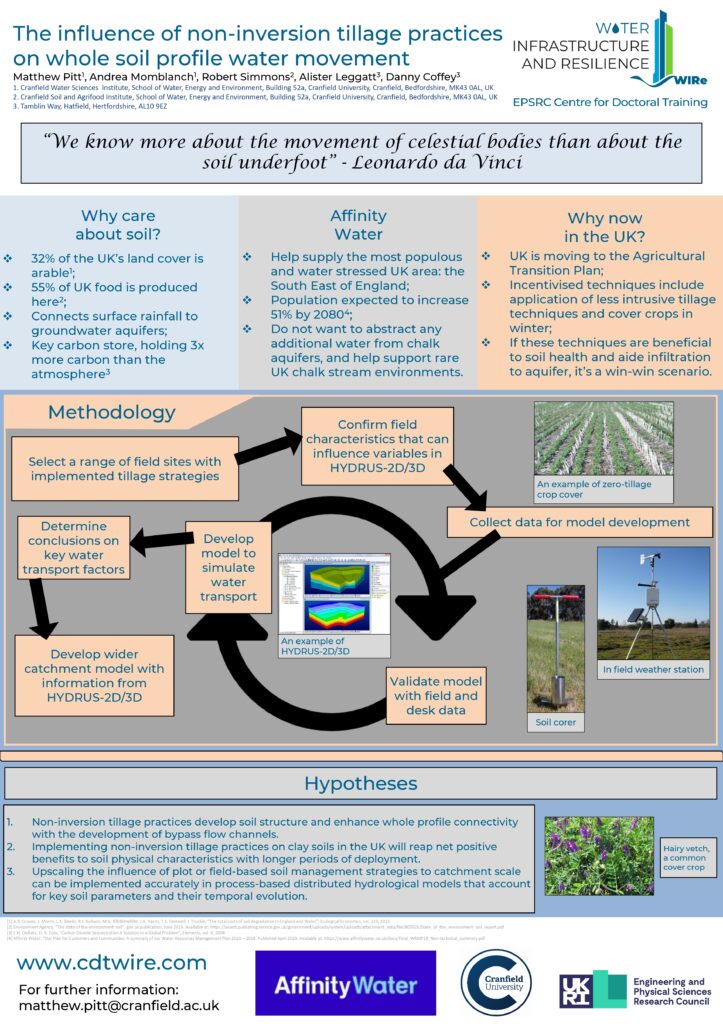Meet Matthew Pitt
Email: [email protected]
Academic and Industrial affiliations: Cranfield University, Affinity Water
Title of research project: Soil as a core infrastructure to achieve catchment resilience

Climate change and increasing population in the drier south and east of the United Kingdom are critical challenges that the environment and the water industry face. In a water supply network that will be further strained, it is expected the south-east of England will require an estimated additional capacity of over 2000 Ml/d in a drought scenario, as the population is expected to rise by 51% by 2080. As 32% of the UK’s land is arable, optimising and improving water regulation within the soils of this arable land is paramount to securing future water supply and environmental protection. This is in tandem with the development of the Agricultural Transition Plan by the Department of Food and Rural Affairs, incentivising reduced tillage practices and supporting ground coverage of bare soil in non-growing periods of the year.
This project will assess if non-inversion tillage practices improve water transport in the soil during and near saturation, where percolation to groundwater leads to recharge. To do this, a range of field sites will be selected on the same soil type with similar climatology in the south-east of England. To estimate and compare the influence of tillage, multiple sites will be modelled using HYDRUS-2D/3D throughout the seasons, including the growth period using daily reported soil moisture data. Time periods of capillary percolation will be assessed noting the influence of in-situ preferential flow pathways developed from biological activity of undisturbed soil. When plot-scale estimations of the impact of tillage in the soil profile are complete, the next stage will be up-scaling plot-based conclusions to a broader groundwater catchment context, to estimate conclusions on implementation of reduced tillage practices on a wider scale across the south-east of England on arable land.

